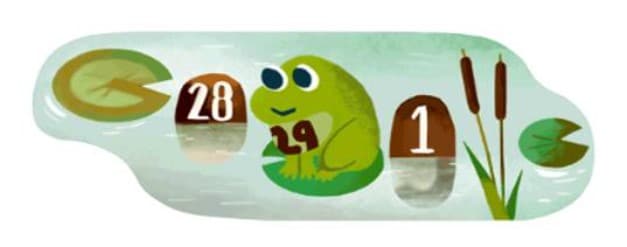Happy Leap Day!

Every four years, we are granted an extra day—a day that appears out of thin air to balance the scales of our Gregorian calendar. This day, February 29th, known as Leap Day, is a peculiar anomaly in our otherwise predictable yearly cycle. In 2024, this anomaly once again graces us with its presence, marking a moment that is both ordinary and extraordinary.

Leap Day finds its roots in the ancient Roman calendar, which initially had only ten months and 304 days, leaving roughly 61 days unaccounted for in the winter. However, it was Julius Caesar who, in 46 B.C., introduced the Julian calendar, which included the concept of leap years to synchronise the calendar with the solar year. Later refinements by Pope Gregory XIII in 1582 gave rise to the Gregorian calendar that we use today.
In the Gregorian calendar system, a leap year occurs every four years, with some exceptions. If a year is divisible by 100 but not by 400, it is not considered a leap year. This adjustment ensures that our calendar remains synchronised with the Earth’s revolutions around the Sun over the long term.
Leap Day holds a special place in the hearts of many, not only because of its rarity but also because of the traditions and customs associated with it. From marriage proposals to special events, Leap Day inspires unique celebrations around the world. In some cultures, it is even considered an auspicious day for initiating new beginnings and taking bold leaps of faith.
One of the most famous traditions associated with Leap Day is the Irish tradition that allows women to propose marriage to men—a custom dating back to the 5th century. According to legend, St. Bridget complained to St. Patrick that women had to wait too long for men to propose. In response, St. Patrick supposedly decreed that women could propose on Leap Day, leading to the establishment of this tradition.
Aside from its cultural significance, Leap Day also serves as a reminder of the intricacies of timekeeping and the complexities of our calendar system. While we often take the regularity of time for granted, Leap Day forces us to pause and consider the intricacies of our temporal reality.
Moreover, Leap Day has inspired numerous works of literature, music, and art. It has been the subject of poems, songs, and even movies, capturing the imagination of people across the globe. Its fleeting nature lends it an air of mystery and magic, making it a captivating topic for creative expression.
As we mark Leap Day 2024, let us take a moment to appreciate the anomaly of time that it represents. Let us reflect on the cyclical nature of our calendar system and the ingenuity of those who devised it. And let us embrace the opportunities it presents for celebration, reflection, and perhaps even taking a leap of faith into the unknown. For on this day, time itself seems to pause, granting us a brief respite from the relentless march of days—a precious gift that reminds us of the beauty and complexity of our world.